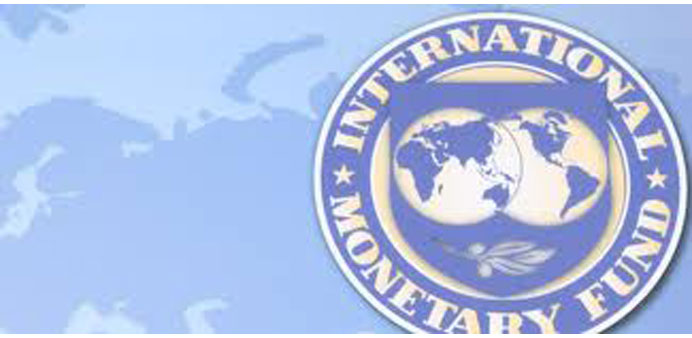|
Egypt’s credit default swaps are signalling that a $3bn lifeline from Qatar isn’t enough to assuage concern the North African country will struggle to meet its obligations without International Monetary Fund aid. |
Five-year contracts for the most-populous Arab nation climbed 47 basis points this month to 630, the highest level in a month, yesterday, according to data provider CMA. That compares with an average gain of seven basis points to 263 for contracts of Middle East peers.
Talks with the IMF, now in a third year, have yet to come to fruition as concern over Egypt’s ability to meet its financing needs led Standard & Poor’s to cut the country’s rating to CCC+, the lowest globally apart from Cyprus.
Cairo has 986bn Egyptian pounds ($141bn) of outstanding debt and interest, including about E£730bn due by the end of 2015, data compiled by Bloomberg show.
“It’s becoming increasingly clear that Egypt can’t survive solely on aid from Qatar,” said William Jackson, emerging markets economist at London-based Capital Economics. “The reforms that an IMF deal would entail are needed to make recovery in Egypt more sustainable.”
The country’s debt is the world’s fifth riskiest after Argentina, Venezuela, Pakistan and Cyprus, according to CMA, which is owned by McGraw-Hill Cos. and compiles prices quoted by dealers in the privately negotiated market.
Egypt is struggling to trim public spending to narrow the Middle East’s biggest budget deficit as a percentage of gross domestic product.
The government needs to widen its tax base and restructure subsidies to avoid posting a fiscal gap of 15% next year, up from as high as 11.7% in the year ending June 30, El-Morsy Hegazi, the finance minister replaced in this month’s cabinet reshuffle, told lawmakers in April.
“The market is pricing in the deterioration of the fiscal numbers,” Stephen Bailey-Smith, London-based emerging markets strategist at Standard Bank, said by phone May 14. “The fact is there’s been no fiscal consolidation, which an IMF deal would entail. Until then, we will likely continue to see large fiscal deficits being financed at artificially high rates because of the lack of confidence.”
The government relies on sales of Egyptian pound-denominated treasury bills and bonds to finance its budget, leaving it at the behest of local banks as they demand yields surpassing most regional peers. The yield on one-year T-bills has jumped 120 basis points, or 1.2 percentage points, this year to 14.7%. That compares with 5.35% on similar-maturity debt in Lebanon.
The country’s external borrowing costs have also soared as the post-2011 transition degenerated into divisive politics and chronic unrest that has battered the economy. The $1bn of benchmark 5.75% bonds due in 2020 yielded 7.36% at 9:25am yesterday in Cairo, a surge of 133 basis points in 2013.
Egypt’s credit rating has been lowered six times at S&P and Moody’s Investors Service since the uprising that toppled President Hosni Mubarak. Negotiations with the IMF for a loan of $4.8bn have hit repeated obstacles, forcing Egypt to rely on aid from countries including Qatar to prevent its foreign reserves, which cover only about three months of imports, from plunging further.
Qatar, the world’s biggest exporter of liquefied natural gas, has provided about $8bn in support for Egypt as the country expands its influence among Islamist groups across the Middle East.
Still, an Egyptian default “isn’t possible at the moment” because external debt remains small, Raza Agha, chief Middle East and Africa economist at VTB Capital in London, said.
Gross external debt fell to 13.8% of economic output in December 2012 from 14.7% before the start of revolt, according to Finance Ministry data. Prime Minister Hisham Qandil said the initial IMF agreement would be reached by the end of May, according to an interview aired on Al Arabiya television May 13.
Securing the deal would give the ruling Islamist Freedom and Justice Party “credibility to its reform agenda as it doesn’t have experience in running an economy,” Agha said. “The good news is if FJP gets its act together with sustained donor support and elections toward the end of the year, I think the external sector can turn the corner.”
Egypt’s debt-servicing bill is set to jump almost a third next year, accounting for more than a quarter of spending, according to a draft budget under review by the upper house of parliament. Subsidies are poised to increase 12% to comprise 30% of spending.
Implementation of policies to bring the country’s finances in check aren’t likely before elections for the lower house of parliament are held, Bailey-Smith of Standard Bank said. Mursi said in March the vote would take place in October.
“We’re still at an impasse and the government doesn’t seem to be able to get out of,” Bailey-Smith said. “At some point your ability to roll over debt becomes questionable.”

